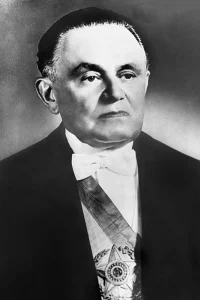
Brazil’s path to democracy was far from perfect and often tortuous. In 1961, a “possibly half insane” Janio Quadros was elected to the presidency. One of his more miscalculated moves was to threaten resignation if Congress did not give him more power. Congress instead accepted his resignation, and his successor, Joao “Jango” Goulart became President. Goulart, however, was much too leftist for most people and on March 31st 1964, he was overthrown by Brazil’s Armed Forces; U.S. involvement was suspected, but denied by Ambassador Lincoln Gordon. What followed was a military dictatorship that ruled for twenty years with an iron fist, often torturing its own citizens under the guise of maintaining order.
Lincoln Gordon served as Ambassador from 1961-1966; Niles W. Bond was in Rio de Janeiro as Deputy Chief of Mission and Minister from 1959-1963; Curtis C. Cutter was Principal Officer in Porto Alegre from 1969-1970. They were all interviewed by Charles Stuart Kennedy, beginning in September 1987, April 1998, and February 1992 respectively. David E. Zweifel was Political officer in Rio de Janeiro from 1962-1965; he was interviewed in September 1996 by Thomas J. Dunnigan. Ashley C. Hewitt interviewed John Hugh Crimmins in May 1989; he served as Ambassador from 1973-1978. There is also a new book on Lincoln Gordon in the ADST Diplomats and Diplomacy series.
You can also read about Chile’s and Argentina’s transition to democracy and other Moments dealing with Latin America.
“This new president was considered strange and possibly half insane”
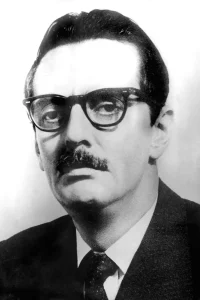
BOND: In ’59 Brazil was in good shape. They had a very good president [Juscelino Kubitschek] who had done a lot for Brazil, including moving the capital out of Rio and up to Brasilia, which made sense, but was not viewed with any pleasure by either diplomats or bureaucrats. And the country was fairly well off economically.
He was a good president but, more important, he had a wonderful idea man. This man was responsible for some of the best things Juscelino did, such as building a new capital in Brasilia….
They had reached the point where they were having to look ahead to the next election — Brazil’s presidents serve only one five-year-term — which must have been in 1961 — and the favorite candidate was the former governor of São Paulo, previously mayor of the city of São Paulo. His name was Janio Quadros [pictured]. The election was won by this former governor of São Paulo. The system in Brazil at that time, as I recall, was that the man who won the election became president and the one who came in second, who was usually of a different party, became Vice President….
But this new president was also considered strange and possibly half insane. A lot of Brazilians thought he should have been in an institution. So there was a great deal of worrying as to what sort of president he would turn out to be.. He came in on a good platform of “sweep out the crooks” (his symbol was a broom) but gradually, once he took office, he began grasping more and more powers.
Finally, Quadros went to the Brazilian Congress to demand even more power, which would have given him almost autocratic control over the country. And he let it be known that, if Congress did not agree to his demands, he would resign. He then left Brasilia to go back to São Paulo, and waited to announce his resignation until after Congress adjourned. But he mis-timed it! The members of Congress were still on their way to the airport to return to their homes when they heard about it. They turned around, went back to the Congress, and voted to accept his resignation.…

The President had been in office for less than seven months when he suddenly resigned for reasons that were not at first evident to the public. He had been elected largely on the basis of his fine record as mayor and then governor of São Paulo; his candidacy had received the support of conservative business interests, including at least the moral support of the American business community in Brazil.
Once in office, however, he had soon begun to pursue an independent and predominantly neutralist foreign policy oriented toward the Third World and away from Brazil’s traditional friendship with the United States. His resignation was intended as a political maneuver designed to extract from the Brazilian Congress a grant of authoritarian powers which would enable him to carry out his vaguely defined program of reforms. [Pictured with Che Guevara in 1961]
But the Congress had called his bluff by accepting his resignation. The fact that the president had not really meant to resign did not alter the fact that Brazil was suddenly left without a president, and with a vice president who, in addition to being far to the left of the resigned President was, at the time, absent from Brazil on a trip to Communist China.
During the afternoon rumors began to circulate in Rio suggesting that the President had been forced to resign by pressure from the United States. By late afternoon a menacing crowd, consisting mostly of young toughs, had begun to gather around the embassy chancery in downtown Rio, with little evident discouragement from the few police in the area. Calls from the embassy to both the Foreign Office and Police Headquarters, brought no appreciable police reinforcements.
The embassy building, while a fine example of contemporary urban architecture and an efficient and comfortable work place, was obviously not designed to be defended against external attack. The front doors were of glass with no protective grills or grating and, thanks to full length glass windows along the entire front of the embassy, the interior lobby was totally visible from the street.
The VP takes over, “a very leftist candidate who was hated by the center and the right”
Marine Guards, and the Embassy security staff inside the building were issued carbines and tear gas grenades with the customary admonitions concerning their use. At about six o’clock in the afternoon the crowd outside, which had grown to several thousand, started throwing rocks and other missiles at the windows of the embassy. They began to surge toward the front doors where the few police were concentrated.
Marine Guards stationed on the upper floors dropped tear gas grenades between the crowd and the embassy entrance. The demonstrators pulled back across the street and resumed their barrage of rocks. After several more abortive efforts to reach the embassy doors, and having apparently run out of rocks or windows or both, the crowd began to disperse just as a truckload of armed riot police arrived on the scene….

So [Quadros] resigned inadvertently. Now, under the Brazilian Constitution, in the case of the demise of a president, his resignation, or anything of that sort, the vice president assumes the presidency. And the Vice President, Jango Goulart, was a very leftist candidate who was hated by the center and the right as well as by the army and the conservatives. [Photo: Getty Images]
This man stood in line to inherit the presidency; but he was such a bad character and so bad for Brazil at that time that many in the army said they would not permit him to become President.
The dilemma was that the military were responsible for supporting and defending the Constitution. This was something they took very seriously. They had always moved in if they thought the government was violating the Constitution. They would throw the offending government out, move in, set things straight, and then withdraw.
But, in this case, defending the Constitution meant handing over the presidency to a man who presented such a danger to Brazil politically, that about half the army felt they should not let the Constitution work the way it was supposed to. At this point, Brazil came very close to civil war. The military divided in any political crisis in Brazil means danger. If the military are all on the same side, there’s no problem, but if they are divided it can mean war.
So they arranged a Brazilian compromise: they would allow the former Vice President to assume the presidency but they would reduce his powers to such an extent that he could do no damage. He took office on that basis, but from then on he continually widened his powers.
It was getting to the point that the military as well as all the conservatives and middle-of-the-roaders were in great fear that he was going to take Brazil Communist. He was very strong with the labor unions. This was all about the end of ’63, I guess. By the time I arrived back in Brazil, in São Paulo this time, in early ’64, things were in that sort of state.
There were public demonstrations, particularly by the women of São Paulo, against the President. There were rumors of a revolution. And finally the revolution took place. One of the major armies of the Brazilian Army rose against the president. It spread from there and finally the whole Army was against him and he fled the country. This was in 1964.
“Sadly, the revolution ushered in twenty years of military dictatorship”
ZWEIFEL: When I got to Rio de Janeiro at the end of October 1962, the Brazilian President was Joao Goulart. He was clearly left-leaning in his political orientation. It was during a time of intense maneuvering in the Cold War between the U.S. and the Soviet Union, and we tended to think in zero-sum terms. If Goulart followed through with his socialist policies, we would lose a round to the Russians. Thus, were very concerned by developments in Brazil.
Indeed, the situation continued to deteriorate, culminating in the military coup in April 1964….
Q: Was there a strong amount of anti-Americanism in Brazil when you were there?

ZWEIFEL: On the contrary, the Brazilians were very, very friendly. Even though they had a government which, as I noted, was quite antithetical to our own philosophy and opposed to many of our policies, the people were by and large very well disposed towards Americans, very hospitable. They especially admired then President John F. Kennedy.
Our Military Attaché during that time was an Army colonel by the name of Vernon “Dick” Walters [later Ambassador to the UN]. An exceptional person in so many ways, he had been the Liaison Officer with the Brazilian Expeditionary Force which fought in Italy during the Second World War. As a result he had become a very close friend and confidant of his Brazilian counterparts.
The so-called “Revolution” which unseated Goulart in early 1964 was led by these officers, many of them by then generals. Walters knew what was in the offing. Indeed by the time the coup took place, it was widely expected — only a matter of time. It was not a surprise to anyone.
The reaction among Brazilians was one of great relief. Sadly, the revolution ushered in twenty years of military dictatorship-headed by those same friends of Dick Walters. But at the time, there was tremendous popular support for the movement.
The Embassy itself was never under any sort of threat. In later years many Brazilians increasingly saw an American hand behind the coup. More specifically, some blamed Lincoln Gordon who remains a somewhat controversial figure in Brazil down to the present day.
Of course this was nonsense, although we welcomed the ouster of Goulart and his leftist cronies…, believing that it would stabilize a situation that was deteriorating very rapidly. The Kennedy Administration was not keen to see another Castro-like radical regime in the Hemisphere, and this seemed to be in prospect under Goulart.
“There was the famous question about whether or not we should recognize the change of regime”
GORDON: The crisis finally came to a head on the thirty-first of March and the first of April [1964], when Goulart fled Brasilia and an acting President of Brazil was sworn in as his successor.
Then there was the famous question about whether or not we should recognize the change of regime or what should be done about that. And I recommended on Thursday, April 2, that the President send a telegram to the acting President of Brazil, a man called [Ranieri] Mazzilli, who had been Speaker of the Chamber of Deputies and was the next in line because there was no Vice President. Goulart had been elected Vice President, and had already gone up to the presidency when Quadros resigned in 1961.
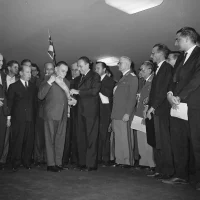
The recommended telegram was sent. I have been criticized a great deal for that, subsequently, by liberally inclined journalists and professors, but most of them have totally forgotten the circumstances. Most of them think that what I recommended recognizing was Castelo Branco [Chief of Staff of the Army] after the issuance of the so-called First Institutional Act. In fact, that was not the situation. The First Institutional Act came on April 9, and Castelo Branco [pictured] wasn’t elected President until two or three days after that, and took office, I think, around April 15.
[Note: On April 9, 1964, the military issued the First Institutional Act, amending the 1946 constitution and granting the executive branch temporary authority to remove elected officials from office, dismiss civil servants, and revoke for 10 years the political rights of those found guilty of subversion or misuse of public funds.]
[Many] describe Goulart as moving to the left, but the left to right scale is not exactly correct. I was convinced that Goulart was not a communist, and said this often in telegrams. He struck me essentially as being… a seeker after power. He had two heroes, one being Getulio Vargas [served as leader of Brazil, first as dictator from 1930 to 1945, and then as President from 1951 until his suicide in 1954], who had been his political mentor, and the other Juan Peron in Argentina. I am morally certain that what he wanted to do and in fact was manipulating things to do, was to become a populist dictator in the mold of those two….
The dramatic events at the end of March [1964] were really nerve-wracking. There was the possibility of a genuine civil war. This is why I developed the proposal for a contingency naval force, which was called “Operation Brother Sam.”
[Note: Declassified transcripts of communications between Lincoln Gordon and the State Department government show that, predicting an all-out civil war, and with the opportunity to get rid of a left-wing government, President Lyndon Johnson authorized logistical materials to be in place and a U.S. Navy fleet led by an aircraft carrier to support the coup against Goulart. These included ammunition, motor oil, gasoline, aviation gasoline and other materials to help in a potential civil war in U.S. Navy tankers sailing from Aruba. Potential support was also made available in the form of an “aircraft carrier (USS Forrestal) and four destroyers, which sailed to Brazil under the guise of a military exercise.]
The people who think that I helped to plan the military conspiracy always point to this naval force. I find that insulting. If it all had been according to my plan, at least I would have had the naval task force handy by the time the Brazilian troops began to move, but it wasn’t anywhere near; it was way up off the northern coast of South America. The whole revolution was over in forty-eight hours.
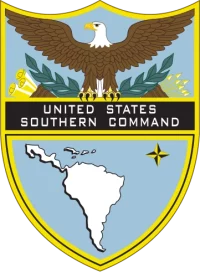
I advised Washington and CINCSOUTH [Commander-in-Chief, Southern Command] to call the task force off and turn it back, except for three tankers loaded with petroleum in them, which I suggested be kept coming at least until we could see if they were needed. The Petrobras [oil company] trade union leadership was very radical and there was some concern about sabotage at the refineries.
As it turned out, there was no problem of that kind. The top officials of Petrobras were changed right away, and I went around to see the new ones. I told them we had three tankers on the way and asked whether they had any use for them. They said no. They were satisfied that everything was under control. So I had the tankers turned around too.
When the telegrams were declassified and published, the Brazilian journalists thought POL meant something political. They were quite amazed. There was a long story years later in the Jornal do Brasil about this. The telegram said, “Turn the task force around, except for the POL which should be kept going until Ambassador Gordon advises that it is not needed.” This was thought to be some deep political conspiracy, and there were many readers eager to believe in conspiracy.
Twenty Years of Military Dictatorship: “I was given a tour of police headquarters and shown the torture facilities”
CUTTER: One of the big problems that was facing U.S. and Brazilian policy at this time was the whole question of human rights violations by the junta. There was a big debate about whether or not these human rights violations were real, or whether they weren’t real. Whether these were just leftist allegations, or whether they were, in fact, true human rights violations.
Of course, this was a very muted kind of thing. A lot of our programs in Brazil depended on our not finding them in violation of human rights provisions. So the Embassy was very careful about what they would report to Washington about human rights violations…. There was very little hard evidence, except for hearsay evidence, about what was being done by the military to repress the Left.
One of the things that grew out of this experience was that the military and the police in Porto Alegre began to see me as somebody they could talk to very frankly and to see my family in the same light. One of the first episodes that occurred was that the lieutenant in charge of our security bragged to my wife at considerable length about the measures they were going to take to solve this case.
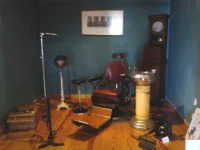
He described in some detail the kinds of methods they were going to use if they ever caught these people, to see to it that they got them all. He was very graphic in his description of some of the things he could do, including a fellow that they called “The Mad Dentist,” who was a guy who flunked out of dental school, whom they hired. They would strap people into a dental chair, and then would go ahead and perform dental care on them with drills and what have you, whether they needed the dental care or not. My understanding is that this is pretty excruciating.
Then they described “The Tank,” into which they could dip people, upside down, hold them in there until they were nearly drowned. Well, they went on at some length with pretty graphic descriptions of what they could do.
It seemed to me, regardless of what my personal situation was, that this was very germane to U.S. policy and that this couldn’t be ignored. We did some fairly substantial reports from Porto Alegre. The reporting chain was from Porto Alegre to the Embassy and from the Embassy on to Washington. After I went back to Porto Alegre, I was even given a tour of police headquarters and shown the torture facilities. So there wasn’t too much doubt that human rights violations were taking place and of a fairly serious nature.
Now, of course, you enter the whole domain of the argument of whether these kinds of things are necessary. They argued that they were. Otherwise, you would have further kinds of incidents like mine. But the facts were plain. They were doing horrible things. And they were doing them in a fairly organized and systematic way. This was something that we put on the record, very plainly, to the Embassy.
I must say, today, that I am not sure whatever happened to our reports which we sent to the Embassy, because later, when I was back in Washington, I looked in vain for some sign that these reports were in fact part of the record. They may very well be although I couldn’t find them. All I can say is that, on the human rights issue, the facts were plain.
CRIMMINS: The human rights and I in Brazil go back to October of ’74 when the G-2 in the section of the 4th Army in Recife imprisoned and tortured an American citizen named Morris… who had been a Methodist missionary at one point, then a stringer for Time at another point, sort of a small businessman at that time, well connected with some of the opposition sectors in the MDB [Movimento Democrático Brasileiro] in Brazil….We had known that the security apparatus had its eye on him because our consul in Recife at that time, Richard Brown, had been told this. Brown said he wanted to be kept informed about any investigations they were conducting, something like that.
Anyway, they picked him up, tortured him. We knew that he was missing. Rich Brown made all sorts of inquiries all over, including to the G-2 section of the 4th Army. He got absolute negatives from everybody: “We don’t have him.” “We don’t have him.” “We don’t have him.”
I was away in the Amazon when this was going on. I came back. Diego Asencio was my political counselor at the time. He met me at the airport when I came back and said, “I think we have a dead one.” He was really concerned that Morris had been killed.
They had been talking to the Foreign Ministry about getting access to him, and we finally did get access to him. It turned out that he had been tortured and had been held by the G-2, contrary to — well, I was very upset about this, very concerned about it…. This was a signal from the notoriously hard-lined 4th Army that things were not going to be that easy.
In any case, I sent a very strong note to the Foreign Ministry demanding access to him and demanding medical treatment….
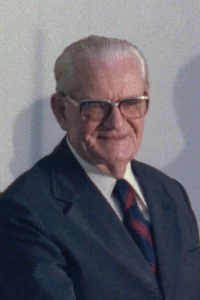
To make a long story short, the Army was furious. Of course, the 4th Army commander, who was caught out in this, was enraged that anybody would have the temerity to do this, and the Minister of the Army, [Sylvio] Frota, seconded this.
We had been under heavy pressure from the press about what was going on with this guy. He was well known, and the whole incident came to the attention of the press, and all American correspondents were calling us. I authorized statements to be made to the press that this is what happened. Of course, this all became public. The Army, it turned out, Frota wanted me to be PNG’ed (declared persona non grata), but the Foreign Ministry and [pictured, fourth President under the military dictatorship, from 1974-79, Ernesto] Geisel, obviously, thought this was be a little much.
Now, that’s ’74. To bring this up to ’76, in January of ’77, for the first time, all the country human rights reports had to be made to the Congress. It was done under the Ford Administration. The amendment to the Foreign Assistance Act was done in June of ’76….
The Brazilians… reacted very violently to this, the government did. I was summoned. We delivered a copy of the report on a Friday afternoon….We were given leeway by the Department on this thing to deliver it or not. It was going to be made public. “It’s going to be delivered to the Congress on Friday and could well be made public by the Congress on Saturday.”
I decided we had to tell the Brazilians because the last thing that I wanted was to have the Folha de Sao Paulo [as heard] bureau in Washington sending this thing down, having it appear in full text in the Folha de Sao Paulo on Sunday and take them by surprise. They knew this was coming. We had told them often that this was going to be done.
So we decided to do it, and we got our copy on Friday in the pouch and delivered it to the Foreign Ministry Friday afternoon. Saturday morning at 9:00, I was summoned to the Foreign Ministry, which was extraordinary, and told that they were, in effect, renouncing all military assistance from us….
The human rights thing led to the renunciation of the military assistance, and eventually to the abrogation of the agreements that had produced the joint Brazil-U.S. Military Commission, neither of which was a great loss. In fact, all the time that I was there, we used to debate constantly whether we should politely and gradually phase out of the joint Brazil relationship. Interestingly enough, the Brazilians were doing the same thing….
Ambassador Gordon – “I was happy about the military takeover because the alternatives seemed to me to me so lousy”
During the previous period of the gradual and then quickening move of Goulart towards the left, were you acting under any particular instructions from Washington? What sort of orders were you giving and what sort of orders were you receiving at this time?
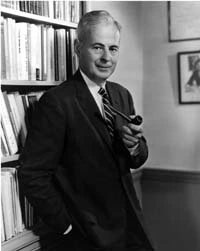
GORDON: I got very little in the way of particular instructions on anything from Washington in that whole four and a half years, other than on certain very specific negotiations…. With respect to our general posture toward Brazil, we were reporting constantly. I was recommending policy positions, and generally speaking they were endorsed. I’m sure that if you had the whole file now of telegram exchanges, you’d find many examples of Washington saying, “That’s fine, go ahead”…. [Ambassador Gordon at right]
In 1976, on a return visit to San Paulo, I was asked in a press interview what my expectations had been at the time of the revolution about the political future of Brazil and how they corresponded with reality. I gave an honest answer. I said that I had been well aware that during the previous six or eight months prior to the revolution there had been growing chaos: political, economic, and social.
When Goulart was thrown out, and the military took over, I thought there would be a period of exceptional rule for a number of months. I expected a good deal of purging of people who were considered subversive in various institutions. But I thought that at the latest by the time of the next scheduled presidential election, which was to be in October 1965, the military would, in keeping with the old Brazilian tradition, get out of political office, go back to the barracks, and turn the government back to civilians. Speaking in 1976, I went on to say that obviously did not happen. The headline in O Estado de Sao Paulo the next day surprised me, because it wasn’t true. It read: “Gordon condemns revolution.” In fact, I hadn’t condemned the revolution; all I did was to contrast what I thought was going to happen to what actually happened.
That example shows, incidentally, some weaknesses in my judgment about the Brazilian scene. However, I did retain confidence that democracy would ultimately be restored. In the 1966 Senate hearings when I was nominated to be Assistant Secretary, I said that the democratic ethos was sufficiently well developed in Brazil that after an interim period they would return to constitutional institutions.
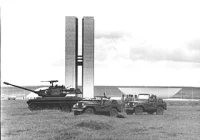
In that respect, I was right although it took a lot longer than I expected. But it’s very interesting that at no time during these entire 21 years of military rule did any of those military presidents — they were all Army generals — argue for permanent military rule. None of them ever acted like Pinochet in Chile. There was never a serious attempt to get renewed in office or to become president for life. And no notion of a permanent military dictatorship.
Indeed, when they dissolved the old set of political parties, they didn’t do what a truly fascist group (or, for that matter, a communist group) would have done, that is, set up a single party. They said there should be two parties…. That is an interesting aspect of Brazilian society.
Q:. What would you say was your greatest achievement that you felt being ambassador.
GORDON: That’s hard. I can describe my greatest disappointment more easily. I was disappointed at the fact that the Alliance for Progress did not become a main objective for the Brazilian government. What became Goulart’s main purpose was trying to get much wider powers….
So I was disappointed that instead of a couple of years of essentially constructive activity like the Marshall Plan, we had economic stagnation and political crisis and then the military takeover.
I was happy about the military takeover because the alternatives seemed to me to me so lousy, but I was not at all happy with the principle of a military takeover. I believe in constitutional democracy as a superior form of government. But I was deeply concerned about the way things were moving. I did not believe that Goulart was a communist, but I was convinced that he was a very weak President. Unlike Vargas or Peron, he would not be an effective dictator.
